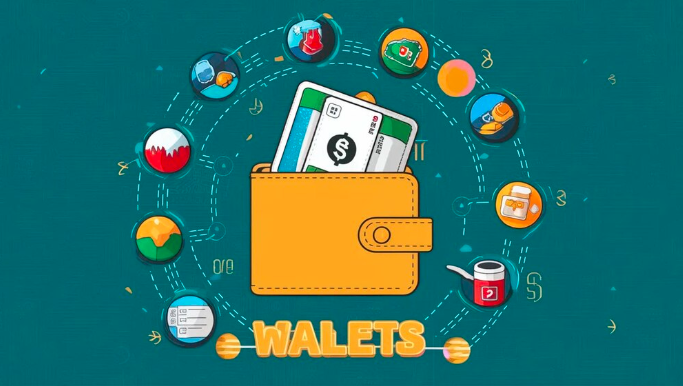Personalizing Digital Wallet Services with AI and Machine Learning Algorithms

The integration of artificial intelligence (AI) and machine learning (ML) into digital wallet services is transforming the way financial transactions are managed and personalized. This convergence of technology not only enhances the user experience but also improves security and efficiency. A notable innovation in this space is the MPC wallet (Multi-Party Computation wallet), which leverages advanced cryptographic techniques to provide heightened security. By combining AI and ML with MPC wallets, digital wallet services can offer a more personalized and secure experience. This article explores how AI and ML are reshaping digital wallet services and the role of MPC wallet in this evolution.
The Rise of AI and ML in Digital Wallets
AI and ML are revolutionizing various industries by enabling more intelligent and automated processes. In the context of digital wallets, these technologies are used to analyze user behavior, predict needs, and customize services. Key applications include:
- Personalized Recommendations: AI algorithms analyze transaction data to provide personalized recommendations for financial products, discounts, and offers. For instance, if a user frequently shops at a particular store, AI can suggest relevant promotions or loyalty programs.
- Fraud Detection: ML models are trained to recognize patterns and anomalies in transaction data that may indicate fraudulent activity. By continuously learning from new data, these models can adapt to emerging fraud tactics and enhance security.
- Customer Support: AI-powered chatbots and virtual assistants can handle customer inquiries and issues more efficiently. These tools use natural language processing (NLP) to understand and respond to user questions, improving the overall support experience.
- Behavioral Analytics: AI and ML analyze user behavior to identify trends and preferences. This information can be used to tailor services and features, ensuring that the digital wallet aligns with individual needs and preferences.
Read also: Smart Home Renovation: Integrating Technology for Modern Living
The Role of MPC Wallets in Enhancing Security
The MPC wallet represents a significant advancement in digital wallet security. Multi-Party Computation (MPC) is a cryptographic method that enables multiple parties to jointly compute a function without revealing their private inputs. In the context of digital wallets, MPC enhances security by:
- Distributing Key Management: MPC wallets split the control of private keys among several parties, ensuring that no single entity has access to the entire key. This distributed approach reduces the risk of key theft and unauthorized access.
- Secure Transactions: MPC technology allows for secure transaction processing by computing and authorizing transactions in a way that keeps sensitive data private. This enhances security while maintaining the integrity of financial transactions.
- Minimizing Centralized Risks: By decentralizing the management of cryptographic keys, MPC wallets reduce the risk associated with centralized points of failure. This decentralized model provides a more resilient security framework.
Integrating AI and ML with MPC Wallets
Combining AI and ML with MPC wallets enhances both personalization and security in digital wallet services. Here’s how this integration benefits users and service providers:
- Enhanced Personalization: AI and ML can leverage transaction data from MPC wallets to offer highly personalized services. For example, AI algorithms can analyze spending patterns and provide tailored financial advice or product recommendations, improving the overall user experience.
- Adaptive Security Measures: AI-powered systems can monitor and analyze transactions processed through MPC wallets in real-time. By identifying unusual patterns or potential threats, AI can trigger additional security measures or alerts, enhancing the overall security of digital wallet transactions.
- Efficient Fraud Prevention: ML models can be trained to detect and prevent fraudulent activities within MPC wallets. By continuously learning from transaction data, these models can identify and mitigate potential fraud more effectively, safeguarding user assets.
- Streamlined User Experience: AI-driven analytics can streamline the user experience by automating routine tasks and providing intelligent recommendations. For instance, AI can simplify the process of managing multiple accounts or optimizing financial strategies, making the digital wallet more user-friendly.
- Advanced Data Insights: The integration of AI with MPC wallets provides valuable insights into user behavior and transaction patterns. Service providers can use these insights to refine their offerings and enhance customer satisfaction.
Challenges and Considerations
While the integration of AI, ML, and MPC wallets offers numerous benefits, there are challenges and considerations to address:
- Privacy Concerns: The use of AI and ML requires access to transaction data, raising concerns about privacy. Service providers must ensure that data is handled securely and in compliance with privacy regulations.
- Complexity of Integration: Combining AI, ML, and MPC technology involves technical complexity. Service providers must invest in robust infrastructure and expertise to effectively integrate and manage these technologies.
- Cost Implications: Implementing advanced AI and ML algorithms, along with MPC technology, can be costly. Service providers must weigh the benefits against the costs and ensure that the investment aligns with their business goals.
Conclusion
The synergy of digital wallets, AI, ML, and MPC technology is reshaping the landscape of financial transactions by enhancing personalization, security, and efficiency. By leveraging AI and ML, digital wallets can provide tailored services and improve user experience, while MPC wallets offer a robust security framework for managing sensitive information. As technology continues to advance, the integration of these innovations will play a crucial role in delivering secure and personalized digital wallet services, meeting the evolving needs of users and service providers in the digital finance ecosystem.




